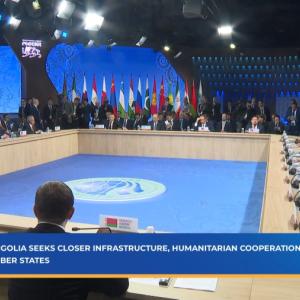Mongolia to abolish death penalty
PoliticsUlaanbaatar /MONTSAME/ Mongolia is to abolish the death penalty next year, Amnesty International reports. Lawmakers on Thursday voted in favour of a new Criminal code that abolishes this type of penalty for all crimes and will take effect from September of 2016. This would bring the total number of countries to have completely abandoned capital punishment to 102.
Roseann Rife, East Asia Research Director at Amnesty International, described Mongolia’s decision as “a great victory for human rights” and added: “Mongolia has set an example which we hope will quickly ripple across Asia.
“The countries that continue to execute have been shown a clear path to follow to end this cruel and inhumane punishment.”
Worldwide, there are 37 countries which retain the death penalty in both law and practice, including the United States, Japan, Singapore, and Taiwan.
Earlier this year, Indonesia resumed executions amidst worldwide criticism, while Pakistan has executed at least 300 people since it lifted a moratorium on executions in December 2014. There are 50 countries which retain capital punishment, but have not used it for at least ten years or are under a moratorium, such as South Korea. In Europe, only Belarus continues to execute people. Three countries–Fiji, Madagascar and Suriname–abolished the death penalty this year.
The last execution in Mongolia was in 2008 and the death penalty remained classified as a state secret. Since then, the country has taken a series of steps towards abolition culminating in last week’s parliamentary vote. In 2010, the President Ts.Elbegdorj commuted all death sentences and announced a moratorium on all executions. In 2012, Mongolia ratified an international treaty committing the country to the abolition of the death penalty.
Elbegdorj has repeatedly said Mongolia must turn its back on the death penalty in order to fully respect the right to life. He argued that the threat of executions does not have a deterrent effect and the risk of a miscarriage of justice is inherent in any system of justice.
Amnesty International says the death penalty is contrary to international law and standards. The Universal Declaration of Human Rights, adopted by the United Nations General Assembly in December 1948 in response to state brutality and terror witnessed during World War II, recognises each person’s right to life and states that “no one shall be subjected to torture or to cruel, inhuman or degrading treatment or punishment.”
Amnesty International argues that the death penalty violates these rights.
 Ulaanbaatar
Ulaanbaatar













































































